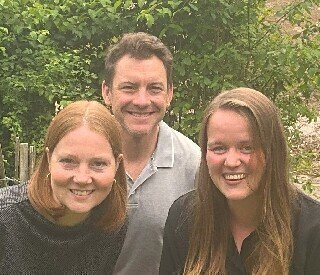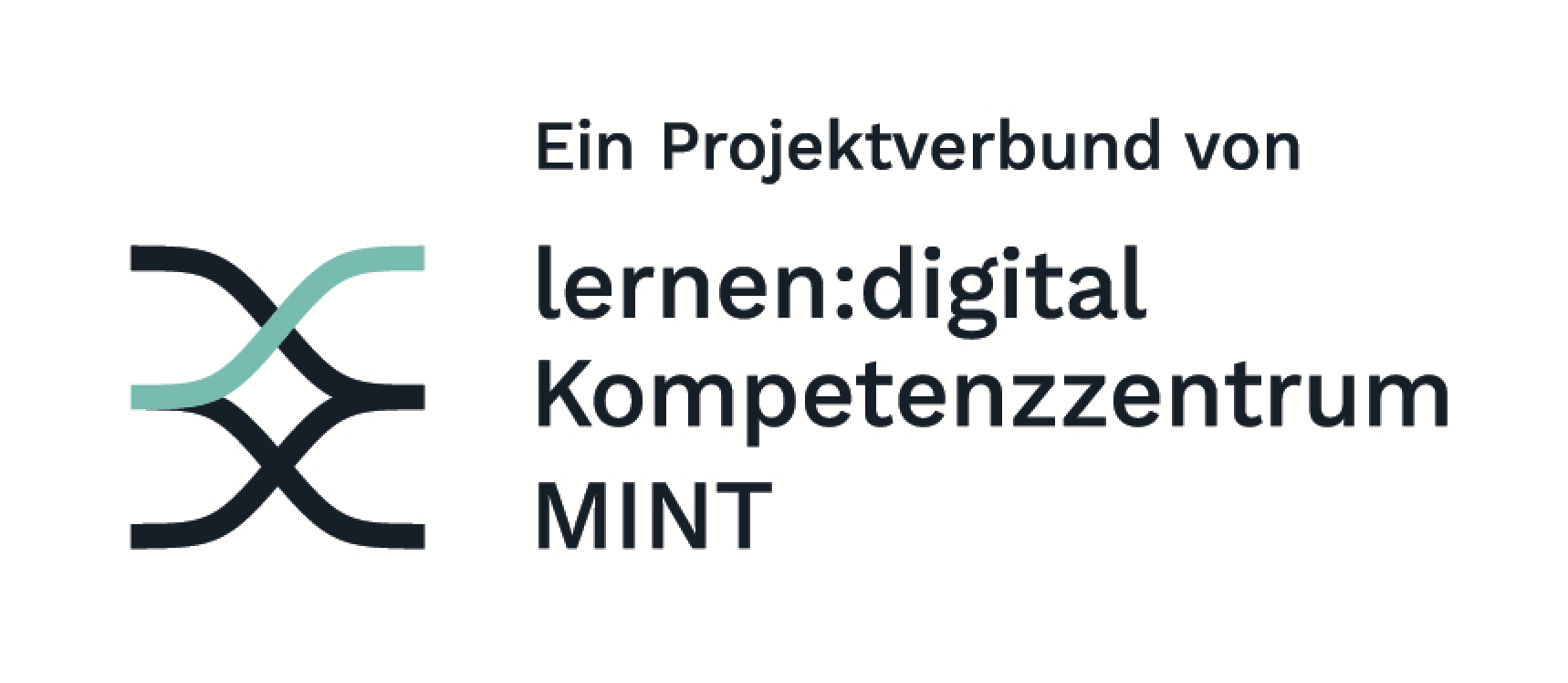DigitEx - Exkursionen digital gedacht!
Kursstart: 1. September 2024
DigitEx - Exkursionen digital gedacht!
Maren Muth, Stefanie Hartmann, Steffen Schaal
Wissenschaftliche Einordnung:
Kursstart: 1. September 2024
DigitEx - Exkursionen digital gedacht!
Maren Muth, Stefanie Hartmann, Steffen Schaal
-
Umfang: 6 Lektionen
-
Aufwand: 1 Stunde/Woche
-
Teilnehmende aktuell: 290
-
Lizenz: CC BY-NC-ND 4.0
-
Kursstart: 1. September 2024
-
Kursende: -
-
Status aktuell: Laufender Kurs
-
Verfügbare Sprachen:
Details zum Kurs
Inhaltsübersicht
Allgemeine Informationen zum Kurs
Entdecken Sie die innovative Fortbildung für digital gestützte Exkursionen der Pädagogischen Hochschule Ludwigsburg!
Unser Kurs im blended-learning Format richtet sich an Lehrkräfte aller Schulformen und bietet flexible Lernmöglichkeiten. Das Ziel der Fortbildung ist die lernwirksame und adaptive Anwendung von digitalen Technologien im Unterricht und an außerschulischen Lernorten.
Der Kurs wird als Open Educational Resource (OER) angeboten und ist modular aufgebaut. Er kann je nach Vorkenntnissen vollständig oder punktuell bearbeitet werden und ermöglicht jederzeit einen flexiblen Start und eine Pause. Unser Kurs bietet Ihnen in allen 6 Modulen informative Videos, zusätzliche Literatur, Praxisbeispiele und vielfältige Möglichkeiten zur direkten Kommunikation mit uns, entweder per Video-Konferenz oder im Forum.
Nutzen Sie diese Gelegenheit, Ihre digitalen Fähigkeiten zu erweitern und melden Sie sich an!
Kursinhalt
Die Fortbildung ‚DigitEx – Exkursionen digital gedacht‘ ist in folgende, verschiedene Module unterteilt:
- Modul ‚Einführung‘: Hier werden die Ziele des MOOCs vorgestellt sowie die Besonderheiten für verschiedene Lerngruppen erläutert. Auch die Theorie des mobilen, ortsbezogenen Lernens wird behandelt.
- Modul ‚Storytelling‘: Dieses Modul beschäftigt sich mit der Gestaltung von Exkursionen mithilfe erzählerischer Elemente, inklusive solchen wie Wettbewerb, Spannungsbogen und unerwarteten Wendungen. Zudem wird die Theorie von Game-based learning allgemein diskutiert.
- Modul ‚Vorbereitung einer Exkursion‘: Hier erarbeiten Sie, wie Sie Exkursionen im Klassenzimmer mit den Schüler:innen vorbereiten können. Dies umfasst die Nutzung von VR-Brillen, des Tools Thinglink sowie die theoretischen Konzepte des Novelty Space und der Ortserkundung.
- Modul ‚Digitale Anwendungen‘: In diesem Modul werden verschiedene digitale Tools wie H5P, Twine und Actionbound vorgestellt und erläutert, wie Inhalte damit erstellt werden können. Auch rechtliche Aspekte werden behandelt.
- Modul ‚Inspirationen‘: Es werden Beispiele vorgestellt, um Inspirationen für wirksame Exkursionen und Unterrichtseinheiten zu erhalten.
- Modul ‚Nachbereitung einer Exkursion‘: Hier geht es um die Nachbereitung von Exkursionen im Klassenzimmer sowie die Vorstellung von Co-Spaces und Minecraft/Minetest als Tools, die dafür genutzt werden können.
Lernziele
Lehrkräfte lernen in dieser Fortbildung, digitale Technologien im Unterricht und an außerschulischen Lernorten effektiv und flexibel einzusetzen, um den Lernerfolg der Schüler:innen zu steigern.
Dabei werden sie sowohl in der lernwirksamen Anwendung der Technologien als auch in der Anpassung an die individuellen Bedürfnisse der Schüler:innen geschult.
Das Ziel ist, dass die Lehrkräfte digitale Technologien im Unterricht und an außerschulischen Lernorten so nutzen können, dass sie den Lernprozess unterstützen und zu besseren Lernergebnissen führen.
Vorkenntnisse
Vorkenntnisse sind nicht erforderlich.
Kursablauf
Der Kurs beginnt am 01.09.2024. Alle Module werden in einem 1-Tagesrhythmus freigeschaltet.
Zertifikat
Für die aktive Teilnahme am Kurs erfolgt bei Abschluss die Ausstellung eines automatisierten Zertifikats, welches Ihren Benutzernamen, den Kursnamen und die abgeschlossenen Lektionen beinhalten. Es wird darauf hingewiesen, dass es sich nur um eine Bestätigung handelt, die aussagt, dass die Benutzerin oder der Benutzer zumindest 75% der gestellten Selbstüberprüfungsfragen richtig beantwortet hat.
Lizenz
Dieses Werk ist lizenziert unter Creative Commons - nicht kommerziell, keine Bearbeitung 4.0 International (CC BY-NC-ND 4.0). Zusätzlich gibt es im Kurs weitere Materialien, die unter einer anderen Lizenz stehen, aber entsprechend gekennzeichnet sind. Bei der Namensnennung in der CC Lizenz bitte das Projekt https://mint-proned.de/startseite/ und den Kursersteller Steffen Schaal nennen.
Kursleitung

Maren Muth, Stefanie Hartmann, Steffen Schaal
Prof. Dr. Steffen Schaal
Professor für Biologie und ihre Didaktik an der Pädagogischen Hochschule Ludwigsburg.
In mehreren Projekten befasst er sich mit der Ausbildung eines reflexiven Lehrkräftehabitus, welcher in vielen gesellschaftsrelevanten Bereichen wie Bildungsgerechtigkeit, Biodiversität und Nachhaltigkeit, Gesundheit, Entwicklung einer Kultur der Digitalität ein wesentlicher Bestandteil der Ausbildung von 21st Century Skills ist.
Dr. Maren Muth
Akademische Mitarbeiterin an der Pädagogischen Hochschule Ludwigsburg.
Ursprünglich aus dem Bereich der fachwissenschaftlichen Biologie, seit September 2023 am Projekt MINT-ProNeD (Professionelle Netzwerke zur Förderung adaptiver, prozessbezogener, digital-gestützter Innovationen in der MINT-Lehrpersonenbildung) beteiligt.
Stefanie Hartmann
Akademische Mitarbeiterin an der Pädagogischen Hochschule Ludwigsburg.
Nach dem Master of Education folgte nahtlos die Arbeit als Doktorandin im Projekt MINT-ProNeD (Professionelle Netzwerke zur Förderung adaptiver, prozessbezogener, digital-gestützter Innovationen in der MINT-Lehrpersonenbildung).
Partner:innen
Das MINT-ProNeD-Team des Standortes Ludwigsburg ist alleine verantwortlich für den Kurs. Es gibt keine Partner:innen, die an der Erstellung beteiligt waren.
Das Team am Standort Ludwigsburg besteht aus Prof. Dr. Steffen Schaal, Dr. Maren Muth und Stefanie Hartmann. Steffen Schaal engagiert sich mit seinem Team in Forschung und Lehre für eine zukunftsorientierte Lehrkräftebildung.
Das Projekt MINT-ProNeD ist Teil des Kompetenzverbunds lernen:digital und bündelt u.a. die Expertisen der baden-württembergischen Schools of Education, die LMU München, die RPTU Kaiserslautern-Landau sowie das Deutsche Institut für Erwachsenenbildung und das Leibniz-Institut für Bildungsforschung und Bildungsinformation. Das Ziel ist die Etablierung eines integrativen Gesamtkonzepts für die Lehrkräftebildung, um adaptiven Unterricht effektiv und mit innovativen Methoden flächendeckend umzusetzen.
Dieser Kurs entstand im Rahmen eines vom Bundesministerium für Bildung und Forschung geförderten und von der Europäischen Union finanzierten Projektes.
-

PH Ludwigsburg
-

NextGenerationEU
-

ein Projektverbund von lernen:digital Kompetenzzentrum MINT
-
Bundesministerium für Bildung und Forschung
